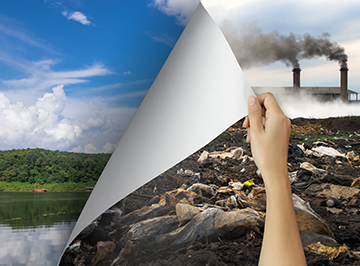

Year 12 Environmental Science Units 3 and 4
Overview
Environmental Science is about the interactions and interconnectedness between humans and their environments, as well as an opportunity to analyse the functions of both living and non-living elements that sustain Earth systems.
In Unit 3, you will explore ways in which biodiversity can be sustained whilst maintaining human development. In Unit 4, you will explore how climate change and the impacts of human energy use can be managed. Plus, you’ll engage in your own scientific inquiry in an area of environmental science.
Who is it for?
This subject is for students interested in the current environmental challenges facing our planet, especially those who might be interested in a career in this area.
Expect lots of opportunities to arise in this field over the next decade!
What do you do?
Learn why biodiversity is important for life on Earth.
Explore real-life examples of environmental management.
Discover why climate change has become an issue in recent years.
Investigate the wide variety of alternative energy sources on offer.
Complete a scientific investigation that is chosen and designed by yourself.
What skills do you need?
To be successful in this subject you need some understanding of how to conduct a scientific experiment.
Study skills such as note taking and organising your study schedule to accommodate practical activities will help you succeed in Environmental Science.
- studying techniques for synthesising large amounts of information and remembering environmental science vocabulary
What skills do you develop?
You will develop skills including:
- developing aims and questions, formulating hypotheses and making predictions
- planning and undertaking investigations
- conducting investigations to collect and record data
- analysing and evaluating scientific data, methods and models
- drawing evidence-based conclusions
- communicating and explaining scientific ideas
- studying techniques for synthesising large amounts of information and remembering environmental science vocabulary
Requirements
You must have access to the internet to access this course. All work will be completed and submitted online weekly.
Experimentation is a requirement of this course. All experiments are designed to be able to be conducted in a home setting using materials that can be obtained from a supermarket or pharmacy. You will need to obtain most of these materials for yourself throughout the year.
You will also need an exercise book to use as your logbook for practical work. Practical work is a central component of learning and assessment and may include activities such as laboratory experiments, fieldwork, simulations, modelling etc.
You will spend at least 10 hours of the Unit 3 course and 20 hours of the Unit 4 course completing practical work and scientific investigations.
Things to think about
You are expected to spend approximately 5 hours a week completing the tasks in Environmental Science.
You are expected to regularly participate in the online environment, including submitting forum posts, reading weekly announcements, and participating in online lessons, where possible.
You will also be required to conduct experiments. In order to do so, you will need to plan ahead to gather materials and make the time to perform this type of practical work.
Things you can do now
Look at the VCAA website and familiarise yourself with the study design and assessment criteria for Environmental Science Units 3 and 4.
Read and watch as much as you can about environmental issues in the media.
Things to have a look at
ABC Enviroment News
The ABC news site dedicated to the environment
Following the Australian national broadcaster will keep you up to date with developments and news about the environment
Background information on climate science
ABC iView
The ABC iView collection: Science Nature and Environment
A series of documentaries on the topic of Science and Environment